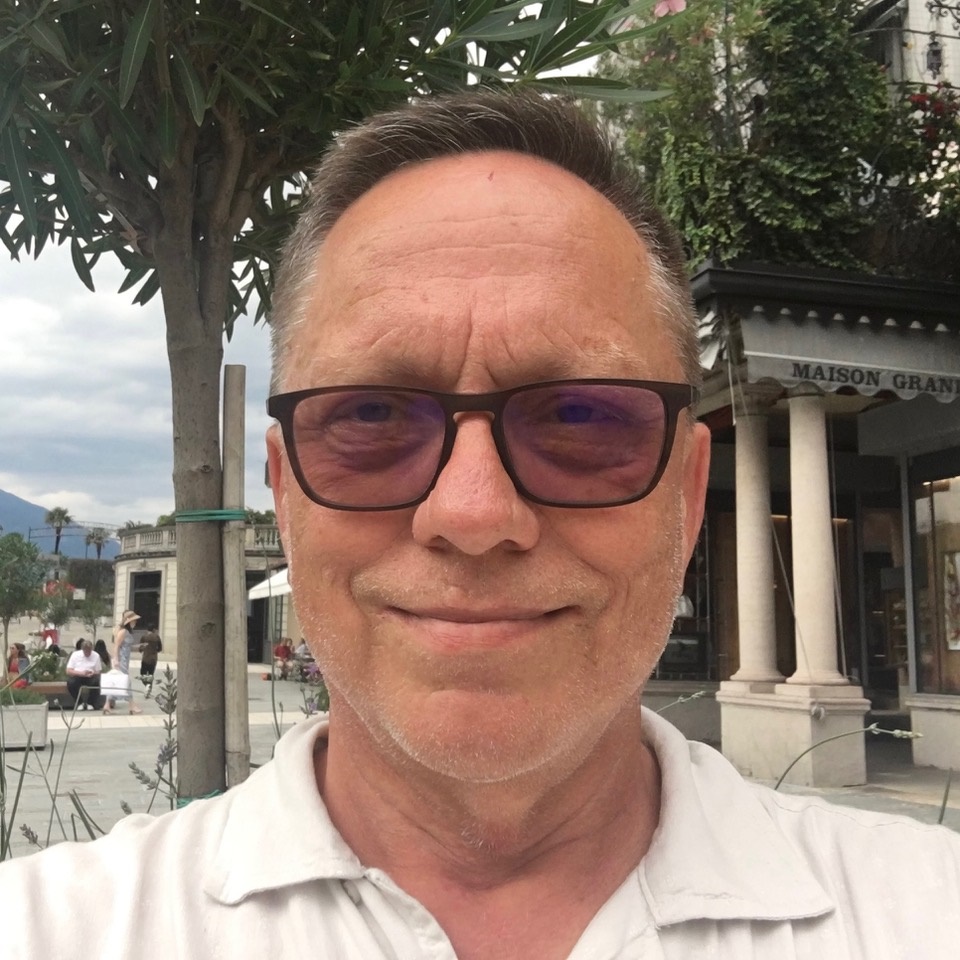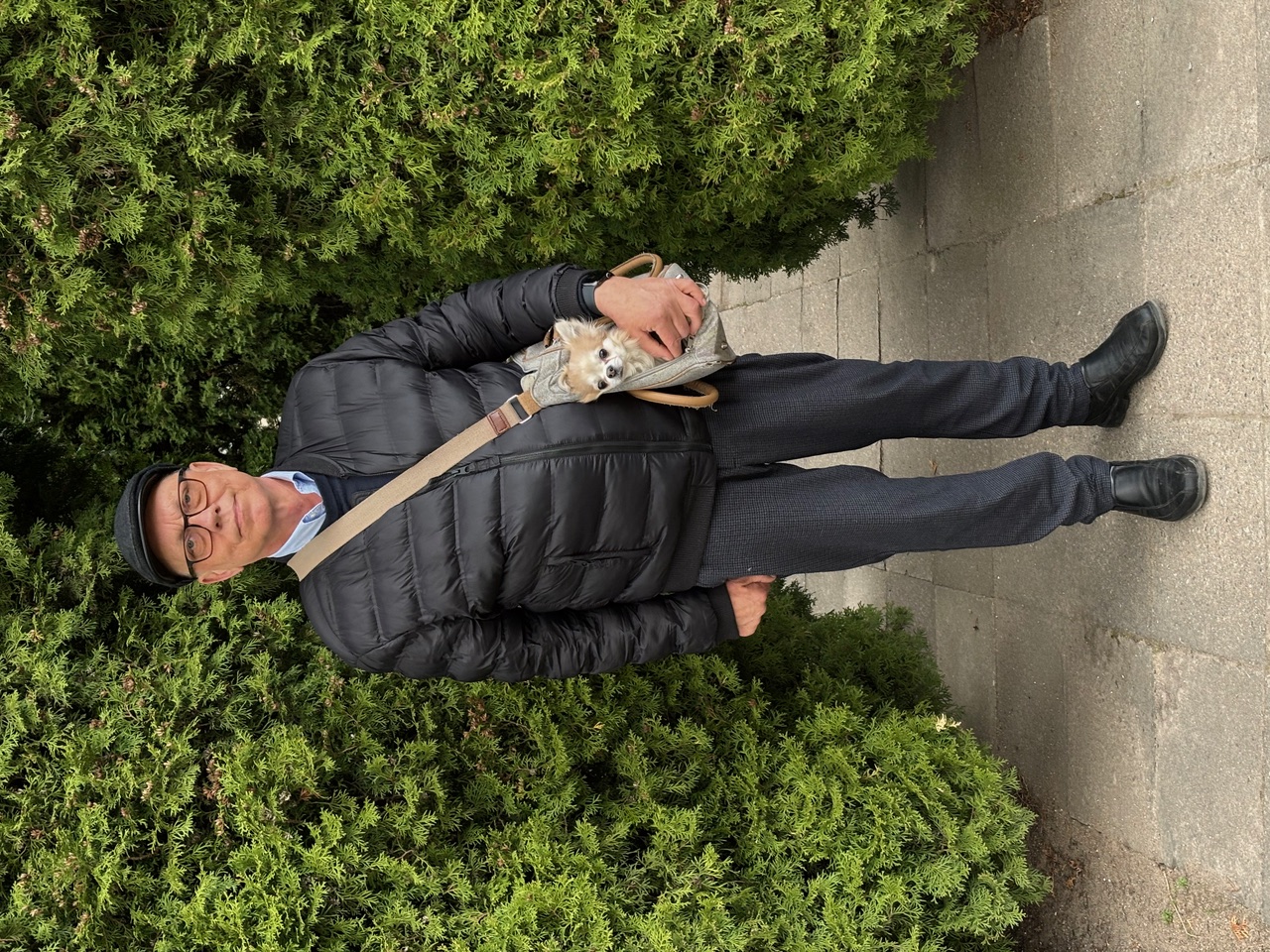
Heino Nurk
Biography
Heino Nurk (he/him) was born in 1958. His family resided in a small town called Abja-Paluoja, located near the Latvia border in Southern Estonia. Heino spent most of his childhood and youth in Abja-Paluoja. After completing his studies in the music class at middle school, his family relocated to Pärnu County.
Heino decided to apply to study geography at the University of Tartu. Geography was chosen as his major subject because it was considered an ideologically and politically neutral topic in the Soviet ideological background. The Soviet Union’s ideological teachings heavily impacted history and humanities subjects syllabi and education during Heino’s high school programs. This directed Heino to choose his natural sciences degree, as he enjoyed spending time in nature already then. At this time, he briefly considered a career path as a geography and biology teacher.
Heino was active in both the Lutheran Church and partook in an underground Tartu Lutheran student group from 1977 to 1980. During this time, Estonian Christians were persecuted by the Soviet government and their KGB forces. This felt nerve-wracking period of time for Heino. He realised that he would never be able to create a teaching career as a publicly Christian man in the societal Soviet background.
Furthermore, this aforementioned realisation fortified Heino’s resolution to begin his theological education journey to become a Lutheran pastor. Then after, he enrolled in a theology program at the Institute of Theology of the Estonian Evangelical Lutheran Church. In the second and third years of Heino’s theology training, he was sent to serve the Church because the need for Lutheran pastors was dire at that time.
Heino was ordained as a pastor in the midst of his theology education. He became a Lutheran pastor in the city of Suure-Jaani in Viljandi municipality, situated between Pärnu and Tartu. His ordination was during the Singing Revolution and the liberation movements to end the Soviet rule of Estonia. Notably, the Singing Revolution was a non-violent liberation movement in Estonia and other Baltic countries, which was characterised by citizens singing together publicly unifying and spirit of nationality building songs against the militant Soviet rule.
This national revival movement re-engaged Estonians with the churches too, as the Lutheran church was part of that national revival. The years before Estonia’s liberation and the beginning of religious freedom were quite thrilling and wonderful times for Heino as a pastor, because his church was then full of young adults on every Sunday. In 1990, Heino was asked to be a head pastor in one of the largest churches of Estonia, St Michael’s Lutheran Church in Räpina, close to the Russian border. Heino engaged there in an increasingly hectic work as a pastor there spearheading this populous congregation. This demanding and giving congregation work led him to recognize that he wanted to finish his theology degree. Timing was opportune for this hope, as the Theological department at The University of Tartu reopened and Estonia became independent in 1991, leading to his graduation in 1998.
Next, Heino moved to Atlanta, USA, and started his hospital chaplaincy residency at Emory University in 1996. Heino’s encountered the love of his life in the United States. Heino studied another master’s degree in Princeton University and was accepted into their renowned doctoral program. Sadly, Heino had to leave Princeton after two years of PhD candidature attendance for health reasons. Heino’s overall time in the USA was personally significant for him as he encountered his future husband there, and found his gay identity there amongst the USA’s proud LGBTQ+ community. In 2007, Heino moved back to Estonia, leading to a 17-year long-distance relationship on two different continents. He occupied a parish pastor position in Valga, close to the Latvian border, and became a lecturer of pastoral care education at the Institute of Theology of the Estonian Evangelical Lutheran Church.
In 2009, the Estonian Council of Churches proclaimed that they were in opposition against the Estonian government’s Reforming the Family Act. This disheartened and disappointed Heino, as he felt that the Estonian Council of Churches’ statement was like a time travel to the past. In summer 2010, Heino became a co-founder of the Estonian Gay Christian Association (in Estonian: Geikristlaste Kogu).
The Eesti Evangeelne Luterlik Kirik (in English: The Estonian Evangelical Lutheran Church) officials later discovered Heino’s involvement in his LGBTQ+ affirming religious work. Without warning, the Council of the Estonian Evangelical Lutheran Church defrocked Heino from his ecclesiastical position as a pastor, so he would not be able to continue his pastoral work. This raised a media uproar, and most of the secular media defended him. There were also a few supportive voices to Heino within the Estonian Evangelical Lutheran Church, even after this defrocking ruling. After the media scandal settled, Heino was invited to lecture and participate in various public events, and the Geikristlaste Kogu became a member of the European Forum of LGBT Christian Groups. The Geikristlaste Kogu was also heard before the Estonian government legalized same-sex marriage in Estonian legislation.
Heino Nurk reflects that the Estonian Evangelical Lutheran Church has turned increasingly more conservative during his lifetime, referring to his experience and to the theologian Dr. Indrek Pekko’s PhD dissertation, published in 2024 (see Pekko, 2024). Furthermore, Heino Nurk reflects that the experience of firstly being a Christian in the Soviet-ruled Estonia, and secondly being a gay man in the present-day Estonian Lutheran Church are very comparable experiences, as if observing two drops of water. Heino states that church leaders’ reactions to his sexual orientation remind him vividly of the people’s reactions to his Christianity under the Soviet regime. Additionally, both his experiences as a Christian in Soviet times Estonia and a gay pastor remind him of his older colleagues' experiences, like his theology professors who were prosecuted and sent to Siberia. Those colleagues, who sacrificed a lot and suffered great hardships because of their faith, still returned back to Estonia to continue their ministry.

In conclusion, despite his experiences with the Estonian Evangelical Lutheran Church, Heino has not abandoned his profound Christian faith and his theology. Today, 66-year-old Heino is focused on enjoying spending time with his beloved husband in the city of Tartu and their farmhouse, located in Sangaste, South Estonia.
(This biographical statement written by Elina Mäkinen from an interview with Heino Nurk on July 18, 2025 and was reviewed by Nurk.)
Biography Date: July 2025
Tags
Estonian Evangelical Lutheran Church | Clergy Activist | European Forum of LGBT Christian Groups | Ordination/clergy | Estonia
Citation
“Heino Nurk | Profile”, LGBTQ Religious Archives Network, accessed March 01, 2026, https://lgbtqreligiousarchives.org/profiles/heino-nurk.
Remembrances